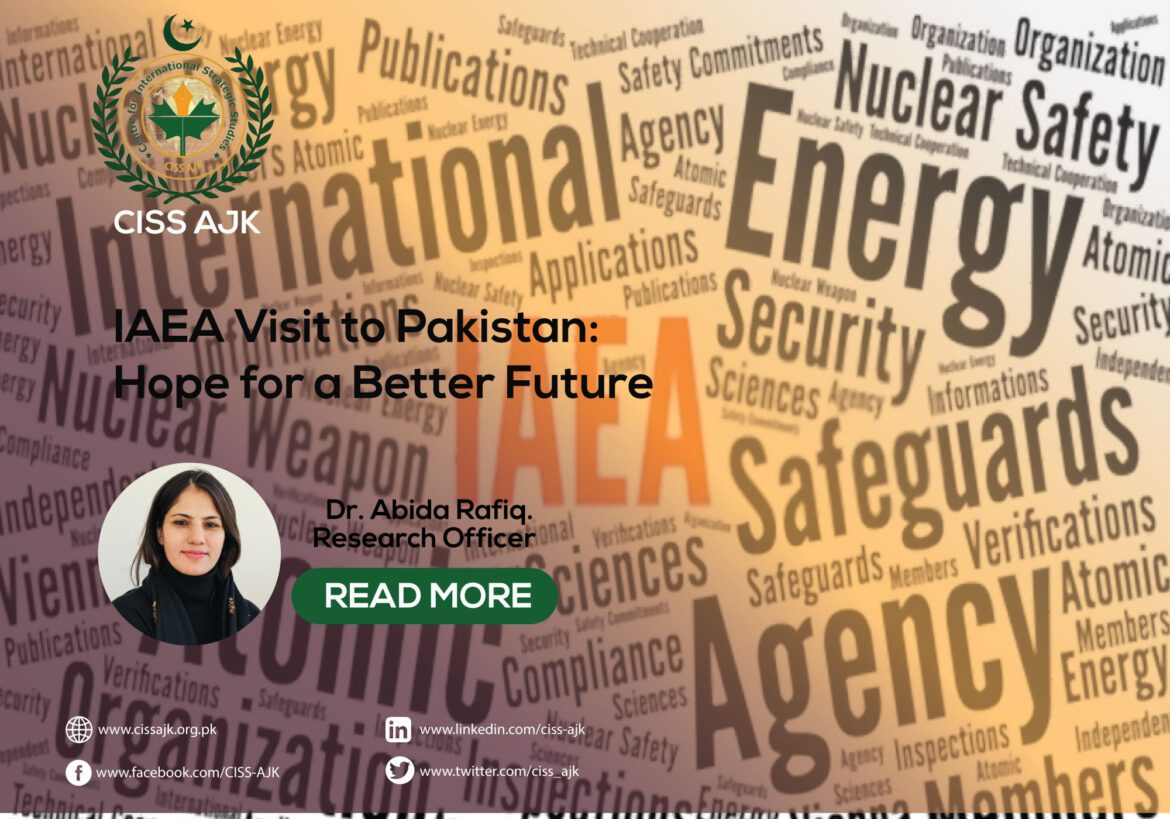he International Atomic Energy Agency (IAEA) is an intergovernmental organization that promotes the peaceful use of nuclear energy and works to prevent the spread of nuclear weapons. It was established in 1957 as a specialized agency of the United Nations and is headquartered in Vienna, Austria. And The IAEA works closely with its member states, which currently number 171, to achieve its goals. It also collaborates with other international organizations, such as the United Nations and the World Health Organization, to address global challenges related to nuclear technology.Top of Form
Pakistan and the IAEA have long-standing cooperation in the area of nuclear security and safety. Pakistan is a founding Member of the Agency since 1957 and enjoys longstanding and mutually beneficial collaboration with the IAEA.
In 2005, Pakistan and the IAEA signed a safeguards agreement that provides for IAEA inspections of Pakistan’s civilian nuclear facilities to ensure that they are not being used for military purposes. The agreement also covers the export and import of nuclear materials and equipment.
Since then, as part of its initiatives to advance the peaceful use of nuclear energy and stop the spread of nuclear weapons, the IAEA has routinely inspected Pakistan’s civilian nuclear plants.
The International Atomic Energy Agency (IAEA) has conducted several visits to Pakistan over the years to assess the country’s nuclear program and to ensure that it is being used only for peaceful purposes. In 1974, following India’s nuclear test, Pakistan initiated its own nuclear program, which led to concerns about the possibility of a nuclear arms race in South Asia. In response, the IAEA conducted its first visit to Pakistan in 1976 to assess the country’s nuclear facilities.
Also in 1998, Pakistan conducted a series of nuclear tests, which raised international concerns about the country’s nuclear program. In response, the IAEA conducted a special inspection in Pakistan to assess the situation and to ensure that Pakistan’s nuclear facilities were being used only for peaceful purposes.
Since then, the IAEA has conducted several visits to Pakistan to monitor and verify the country’s compliance with international nuclear safeguards agreements, including the Nuclear Non-Proliferation Treaty (NPT) and the Comprehensive Nuclear-Test-Ban Treaty (CTBT).
Rafael Mariano Grossi, the director general of the IAEA, will visit Pakistan for two days starting from today and tomorrow.
He will attend high-level meetings and pay visits to various organizations that use nuclear technology in the production of health, food, industry, and power.
The visit would give Pakistan and the International Atomic Energy Agency the chance to investigate ways to improve their current cooperation in the area of peaceful nuclear technology applications for the nation’s socioeconomic development.
Overall, the IAEA’s visits to Pakistan have played an important role in promoting the peaceful use of nuclear energy and in ensuring that Pakistan’s nuclear program is transparent and compliant with international standards.Top of Form
It is important to remember that Pakistan is not signatory of NPT including India and Israel. However, Pakistan has recently improved its nuclear security and stated its intention to collaborate with the international community on non-proliferation and safety-related matters.
This article was originally published in Modern Diplomacy



